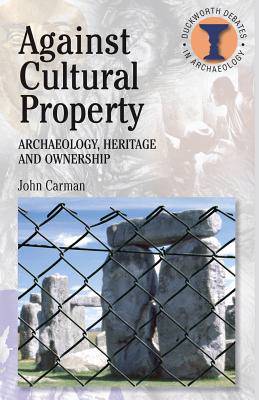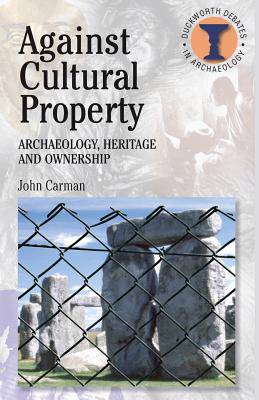
- Retrait gratuit dans votre magasin Club
- 7.000.000 titres dans notre catalogue
- Payer en toute sécurité
- Toujours un magasin près de chez vous
- Retrait gratuit dans votre magasin Club
- 7.000.000 titres dans notre catalogue
- Payer en toute sécurité
- Toujours un magasin près de chez vous
Description
If 'all property is theft', then cultural property is nothing less than the theft of culture. The term 'cultural property' is widespread in the field of heritage management and is a particularly powerful concept in legal approaches. The term and the concept it represents are never discussed, however. The idea that material that comes to us from the past should be considered 'property' accordingly seems to be taken for granted by those charged with its care. Any debate that does take place is limited to comparing private with state ownership, often under the pretence that the latter represents a form of 'stewardship'.
This radical work seeks to challenge the dominance of these limiting ideas by looking for alternatives. Taking as a starting-point the four different types of property relation generally recognised by lawyers and economists, the book explores the implications for cultural objects of different property regimes. In presenting an argument that the concept of 'property' is inappropriate for the heritage, the book challenges much that is taken for granted and un- discussed in the field of heritage management.Debates in Archaeology: this series of short volumes, each devoted to a theme which is the subject of contemporary debate in archaeology, ranges from issues in theory and method to aspects of world archaeology.
Spécifications
Parties prenantes
- Auteur(s) :
- Editeur:
Contenu
- Nombre de pages :
- 144
- Langue:
- Anglais
- Collection :
Caractéristiques
- EAN:
- 9780715634028
- Date de parution :
- 08-09-05
- Format:
- Livre broché
- Format numérique:
- Trade paperback (VS)
- Dimensions :
- 137 mm x 215 mm
- Poids :
- 185 g







